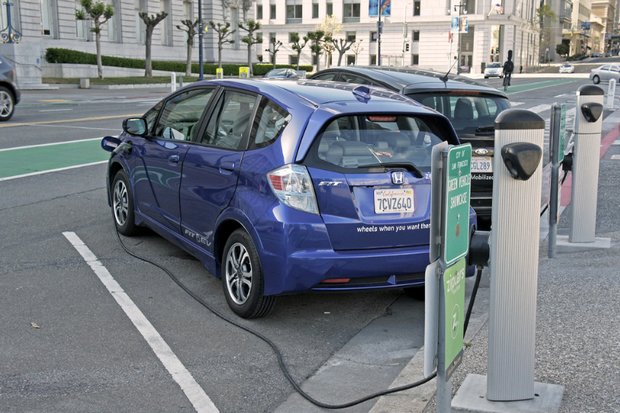
Honda Automobile Thailand has joined the chorus opposing the government's Eco EV programme, saying the simple and cheap EV technology the government is recommending is not suitable for the Japanese car maker's vehicles.
The Eco EV scheme has yet to begin because state agencies are still finalising the details and gathering opinions from car makers. Toyota and Nissan registered their own objections to the scheme in a meeting last Thursday.
Eco EV is viewed as an add-on to the government's EV scheme launched in March 2017. The main purpose is to encourage car makers to produce mass-market EVs with affordable price tags, similar to the eco-car segment.
Mild hybrid cars can be categorised as affordable Eco EVs, according to the Office of Industrial Economics.
Mild hybrid cars use the simplest EV technology; they are essentially conventional cars with some degree of hybrid hardware but limited use of hybrid features.
Pitak Pruittisarikorn, chief operating officer of Honda Automobile Thailand, said mild hybrid technology cannot be extended to battery EVs (full EVs) as the government expects.
"The EV scheme has laid down new rules requiring each car maker to develop technology for plug-in hybrids and battery EVs in the next three years," he said.
Mr Pitak said there are two active policies in the country's automotive industry -- the eco-car and EV programmes -- for eco-friendly vehicles.
The eco-car project, launched in 2007 and 2013, has yet to expire. The EV scheme was introduced with more attractive excise taxes.
"The EV programme is expected to harm the eco-car project," Mr Pitak said. "If the government aims to solve any obstacles, it has to adjust details of the eco-car project to make it more competitive next to the EV scheme."
The EV scheme allows any hybrid and plug-in hybrid cars that emit less than 100 grammes of CO2 per kilometre to enjoy the 4% excise tax.
The eco-car segment is subject to 10-12% excise tax for the same emission level.
Honda is an applicant to both the eco-car and EV programmes for investment at its two local plants in Thailand.
For the eco-car scheme, Honda sold 2,132 units in 2018, ranking below the five other eco-car makers in Thailand.
For the EV scheme, Honda has already implemented the 5.82-billion-baht project, having been granted incentives from the Board of Investment to produce hybrid EVs.
Honda Accord, the 10th-generation large sedan, is the first model under the scheme that Honda plans to deliver to local motorists in mid-May.
With an excise tax of 4%, the Honda Accord can shave 50,000 baht off the price tag of 1,849,000 baht.
Honda expects to sell 9,000 Accords locally, 50% of which will be the hybrid version.